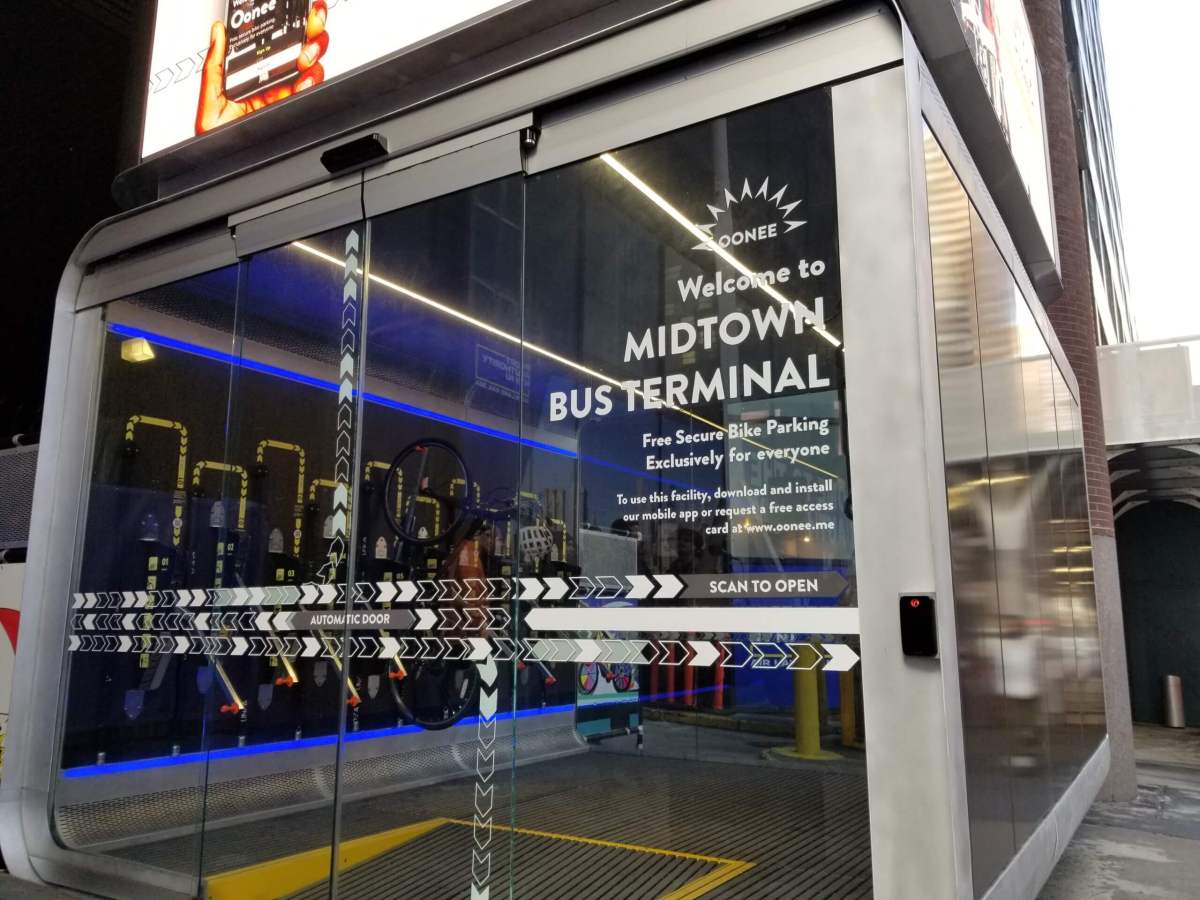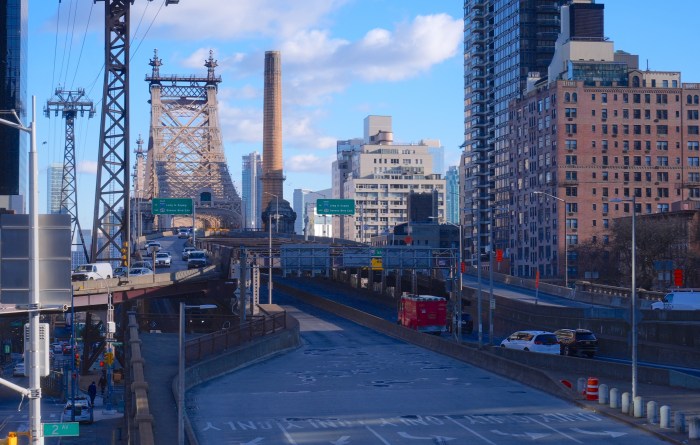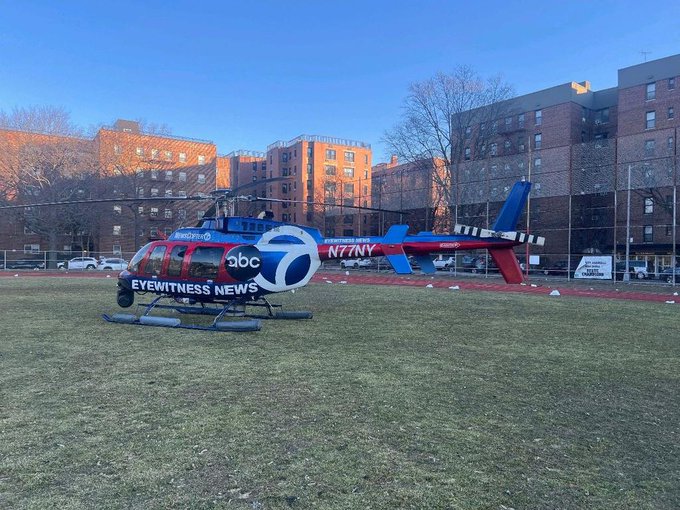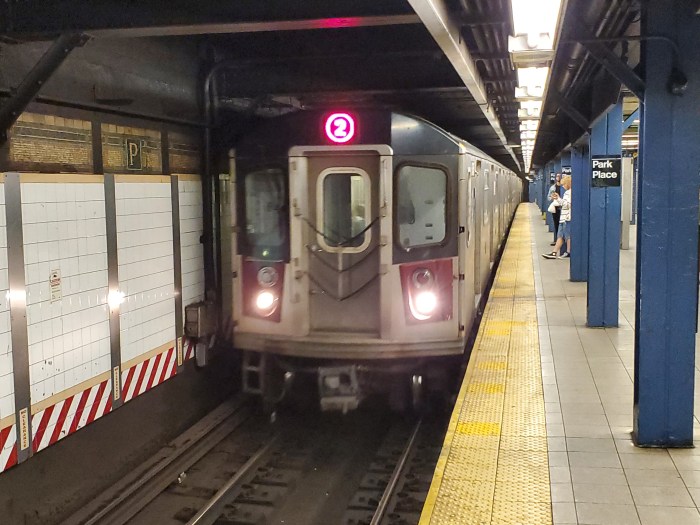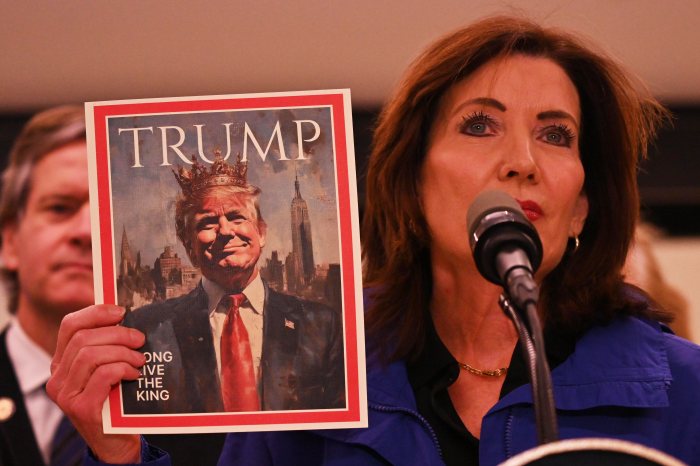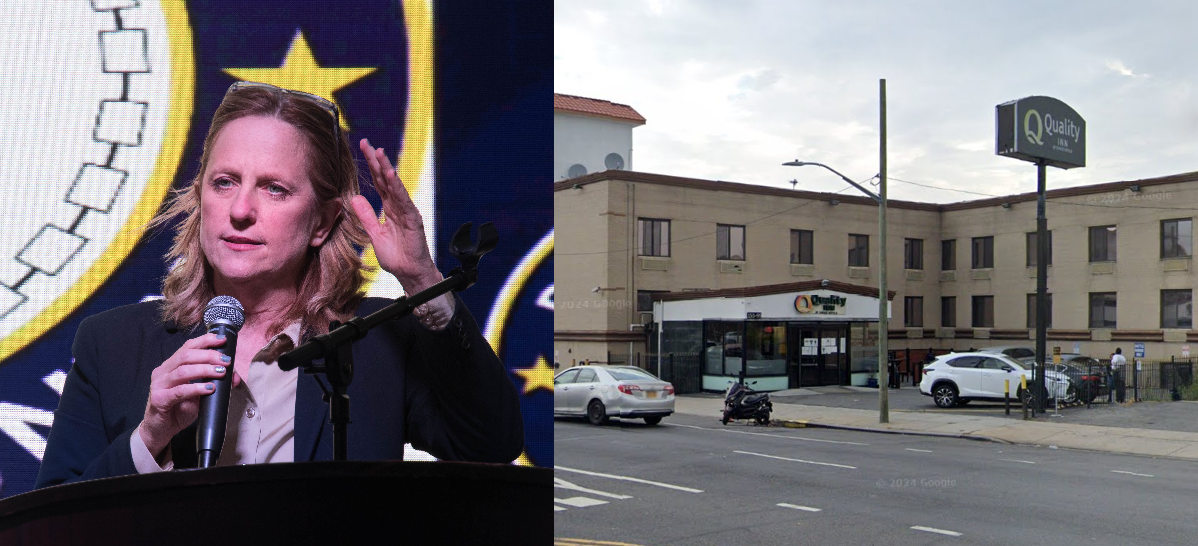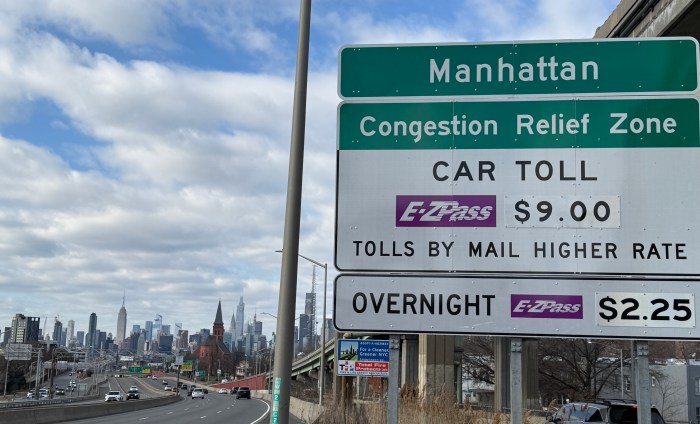Local micromobility startup Oonee on Wednesday opened up its newest hub for bike parking at the Port Authority Bus Terminal, part of what the company hopes is ultimately a network of secure storage for two-wheelers throughout the five boroughs.
The Oonee “pod” on 42nd Street outside the bus terminal can securely hold 20 bikes, and is completely free to use with a membership, allowing access via a keycard or phone app. Spots on the vertical, “smart-locked” racks are available on a first-come-first-served basis, and can be held for 72 hours before the app sends a notification about inactivity.
The Port Authority spot is the company’s third permanent space in New York City, with another hub outside Atlantic Terminal in Brooklyn and a “Mini” pod outside Grand Central Terminal, while another is set to open at Hudson Square near the Holland Tunnel entrance next month.
But the company’s founder, Brooklyn native Shabazz Stuart, has his sights set much grander, on a “ubiquitous” network of bike parking facilities all over the metropolitan area. He believes that his pods reassure folks wary of bike theft—and encourage wider use of cycling and micromobility as a means to get around.

“Secure bike parking is absolutely essential to creating a robust micromobility economy,” Stuart said at the grand opening on Wednesday. “One-quarter of all households in New York have experienced bike theft. It is more acute for people of color and the working class. For the first time, thanks to the Port Authority’s leadership, we have a template for a network of secure bike parking centers right here in the heart of Midtown.”
Oonee is, in fact, already well at work on building out a bike parking network across the Hudson River in Jersey City. There’s already a pod outside the Journal Square PATH station, and in 2021 the company inked a deal with Jersey City to build an additional 29 pods throughout the Garden State municipality. If all goes well, 25 of those will be done by the end of the year, Stuart said.
But Oonee’s progress in New York City has been slowed by bureaucracy since opening its first pod outside Atlantic Terminal in 2019. Though Mayor Eric Adams was on hand for that opening and the administration has been “engaged and interested” in the model, the city’s Department of Transportation has been slower to embrace it than has the Port Authority.
“The goal is to get to a region-wide network. And so folks say congrats, I’m happy, but this is a step in the right direction,” Stuart told amNewYork Metro. “We need to figure out together with our government partners, local and statewide level, how do we get to a network?”
Last year, Oonee and DOT partnered on a temporary pilot placing “Mini” pods on several high bike traffic corridors in Manhattan, Brooklyn, and Queens. A spokesperson for DOT declined to comment on the findings of the pilot and any next steps in expanding bike parking citywide, only saying that the agency will have more info to share soon.

Stuart, a veteran of the public sector, launched Oonee (which is the Japanese word for sea urchin) after having three of his bikes stolen in five years. He’s staked his fortunes on a business model allowing users to park for free, with revenues derived from advertisements on the pod’s structure, in order to expand cycling not just within the moneyed class, but among New Yorkers of all backgrounds.
“Every billboard in the city should be financing something in return. We don’t need to nickel and dime people who use bikes,” said Stuart. “We are getting, by making it free, people out of cars, we’re making it easier for people to use transit, and building our green future, and we’re financing it with contents that are not free, but they’re leveraging value.”
Though not a charitable venture, Stuart says he sees the pods first and foremost not as a moneymaking opportunity but as public infrastructure. Speaking with amNewYork Metro, he compared his vision for the pods with that of bus shelters, which once were nonexistent but are now ubiquitous and allow people to comfortably wait for a bus even when it’s raining.
“With bus shelters, we don’t say put a quarter in there and use the bus shelter,” said Stuart. “We say this is a social good, and for social goods, we’re gonna find a social mechanism to pay for it.”
Read more: ADA Lawsuit Challenges NYC’s Open Streets



